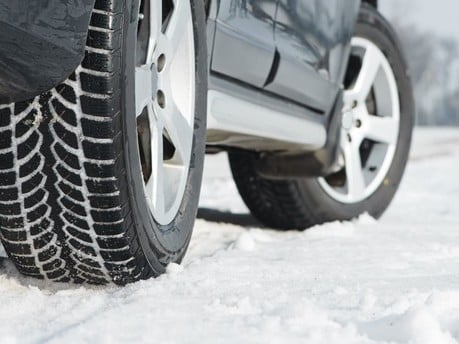When To Fit Winter Tyres
With Winter just around the corner, it is time to start thinking about preparing your car for the inevitable poor weather conditions. Without a doubt, one of the most valuable car parts during the Winter will be your tyres, because they can prevent you from skidding on ice and wet roads, allow you to stop quicker if you need to react to a hazard, and help you get free if you are stuck in snow. Having good working tyres is vital for your safety and that of your passengers, so you need to make sure that yours are up to scratch. One sure-fire way to do this is to have specialised Winter tyres fitted.
What are winter tyres and how do they help?
Winter tyres are designed to be used in low temperatures and on slippery roads. In these conditions, winter tyres will provide more traction and grip, and they are also more effective when it comes to clearing standing water in flooded areas.
There are a few ways in which winter tyres differ from normal tyres. While summer tyres can become rigid in low temperatures, preventing them from clinging so well to slippery surfaces, winter tyres are made with more silica, a substance which keeps them soft in the cold weather. The rubber blocks in winter tyres vibrate to shake out snow, whereas summer tyres can become clogged, causing them to lose grip. Winter tyres also have more grooves to help with displacing water and cutting through snow and ice.
When is the right time to fit winter tyres?
Winter tyres should be used when temperatures drop consistently below 7 degrees celsius, as this is when they become the most effective. If the weather is cold and rainy, it is time to get your tyres changed.
As soon as the temperature starts rising above 7 degrees again, you will need to change back to summer tyres. While there is no UK legal requirement to change them back, it will be safer because the material that keeps winter tyres soft in the cold will cause them to move around a lot in hot weather, providing less control. The silica will also wear down more quickly in heat than a standard tyre which means that you will need to replace your tyres sooner. So, making sure that your tyres are appropriate for the weather conditions will help to keep you safe and save you money.
Where to get winter tyres
Most tyre suppliers will offer winter tyres and fit them for you. It is important to note that the tyres you purchase will need to be the correct size for your wheels, whether you are keeping the set you have or replacing them. Getting replacements could be the easier option in the long run, as this would mean that you can leave the tyres on the wheels and easily change them between summer and winter.
If you are in the market for a new car this Winter, a four-wheel-drive SUV is ideal for handling the treacherous snow and slippery roads at this time of year. Browse our range of used cars in Essex to find the perfect Winter motor!



